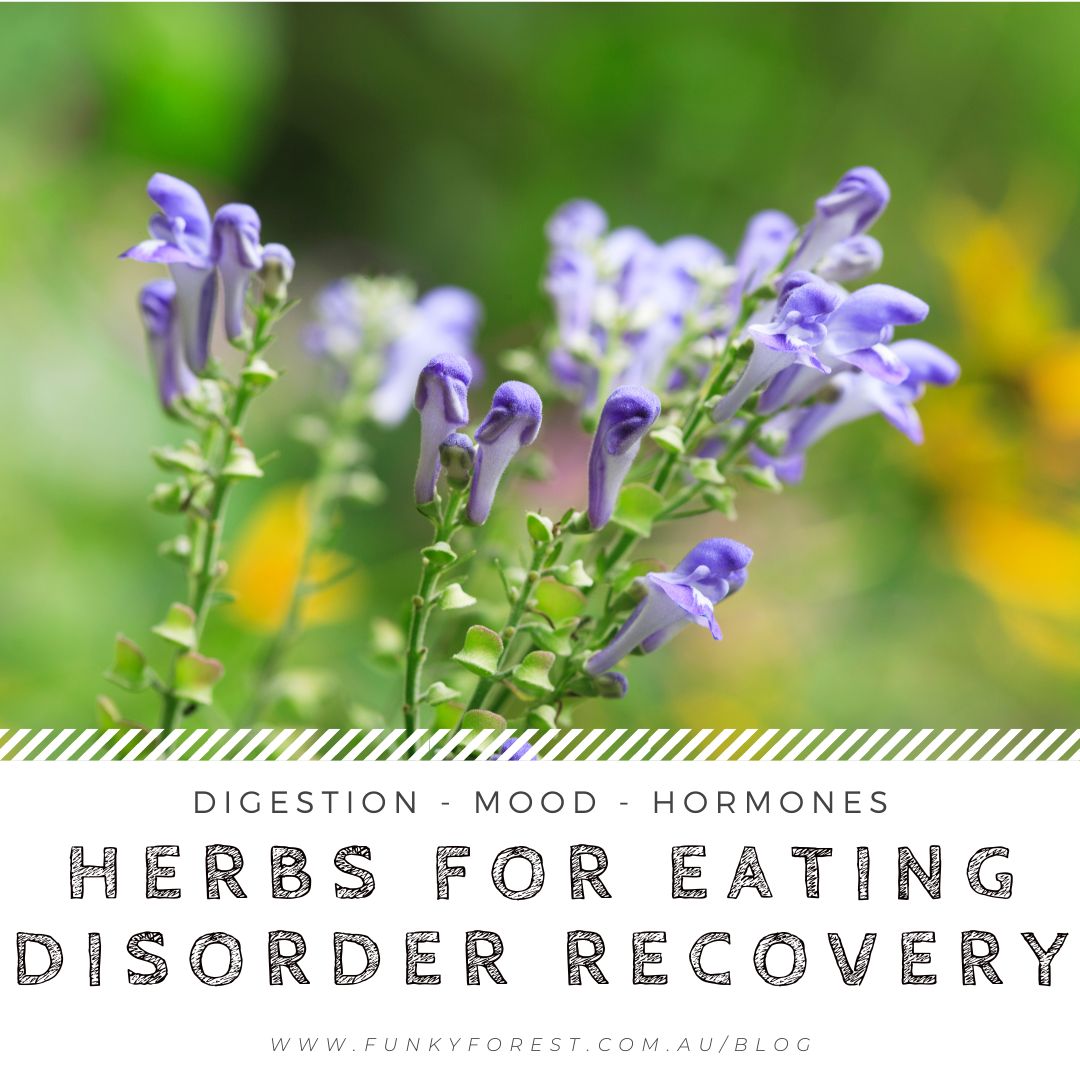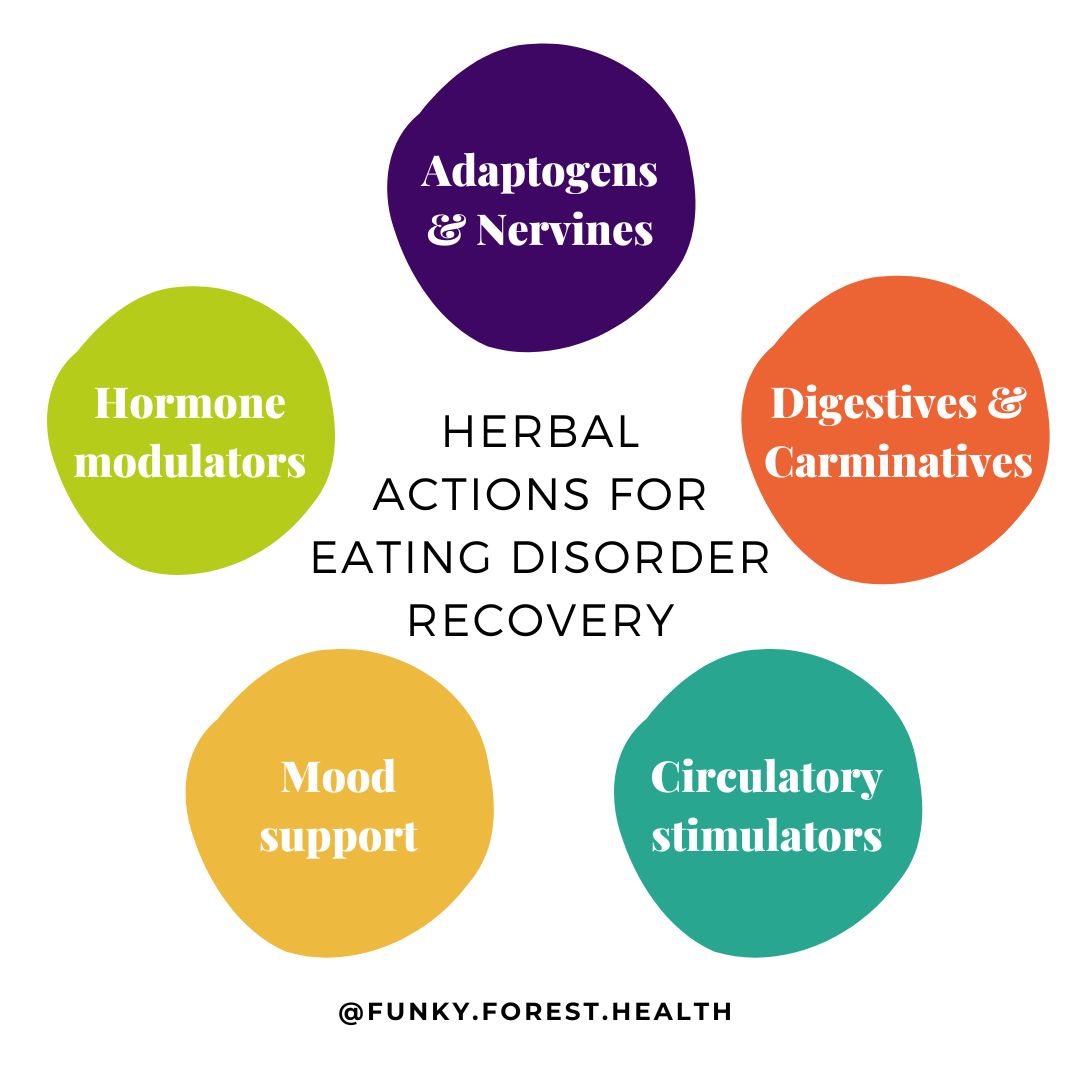This is a controversial topic that I think needs discussion. As an eating disorder dietitian and nearly-qualified naturopath, I believe that we ought to consider the potentially significant support that plant medicine can offer to those experiencing food and body image concerns.
When it comes to eating disorders and disordered eating, herbs can be used for good or harm. Unfortunately, many health practitioners in the ED space have witnessed the latter. Obviously, the abuse of stimulant herbal laxatives and appetite suppressants in service of an eating disorder is not therapeutic and something to watch out for.
However, under the guidance of a qualified naturopath or herbalist, botanical medicines can offer a highly valuable adjunct to psychotherapy and nutritional rehabilitation. Here are some of the ways I have used them in practice...
🌿 Adaptogens & Nervine Tonics: These herbs support the nervous system and HPA axis to increase resilience to stress. They can reduce anxiety and help minimise the severity and incidence of panic attacks and palpitations. Rehmannia glutinosa is a wonderful adaptogen for ED sufferers with deep set fatigue as a result of long term energy deficit and psychological stress.
🌿 Circulatory stimulants: These can help bring oxygen, warmth and nutrients when energy availability has lead to reduced blood flow to hands, feet and reproductive organs, which can worsen PMS symptoms. Ginger is one of my favourite herbs to incorporate into disordered eating treatment as it's warming, increases circulation and doubles as a digestive.
🌿 Digestives and Carminatives: Up to 98% of folks with ED have functional GI disorders (FGID). Careful selection of herbs can help to treat digestive problems that come with disordered eating such as bloating, gas, acid reflux, nausea, loose stools and constipation.
🌿 Mood support: Depression, anxiety and other mental health concerns are frequent co-morbidities in folks with disordered eating. Anxiolytic, nervine and sedative herbs can help when mood dysregulation and sleep disruption are an issue. Skullcap (Scutelleria lateriflora) is a lovely calming plant ally for over-thinkers and those with perfectionistic tendencies.
Herbal medicines can include constituents that are very potent and pharmacologically active. It's super important to consult with a practitioner with both eating disorder training and herbal medicine qualifications to ensure that adverse reactions and drug interactions do not occur.
I strongly recommend consulting a qualified naturopath or herbalist when putting together a holistic ED recovery plan that will best support your needs and goals.
As an eating disorder dietitian (APD, CEDC) and naturopath, I love supporting people to optimise their relationship with food and their bodies using both nutritional rehabilitation and the wonderful plant allies available to us. Contact me at [email protected] if you'd like a 1:1 consultation to provide some guidance on how you can best support your recovery.
To full recovery,
Casey



































 RSS Feed
RSS Feed



